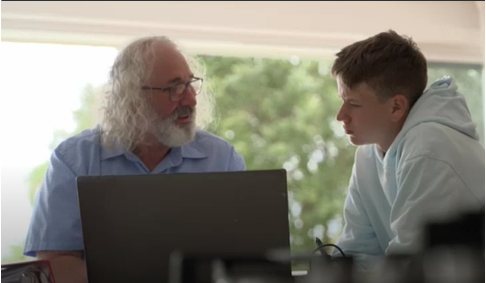RES@T-A (Australia) Program
Resources strengthening training for adolescents with problematic screen use
RES@T-A is a program for teenagers who play video games or use screens at problematic levels – that is, their gaming interferes with at least one important area of their life such as schoolwork, relationships, mental health or physical health. The program was initially developed by German Psychiatrist Dr Kerstin Paschke and her team at the German Center for Addiction Research in Childhood and Adolescence at the Hamburg University Medical Centre. Over the past four+ years the program has been through multiple revisions involving both the German team and an Australian team led by Professor Wayne Warburton at Macquarie University in Australia.
The RES@T-A Australia program, which is a community-based program, was successfully trialled in 2022 and 2023. Successful trials of RES@T-A Germany at Hamburg University Hospital, which is an in-patient program, have been ongoing since 2021. Results from both Germany and Australia suggest the program can be helpful for teenagers with problematic gaming or problematic screen use, and for their families. The program has helped both male and female teenagers, and problems addressed include disordered/problematic video gaming, internet use, social media use, phone use and reeling.
The program is designed to be fun, engaging and supportive, and involves games, quests, quizzes and a range of other activities that are designed to facilitate learning and to change gaming behaviour. Teenagers are often reluctant to come at first, but typically warm up to the program quickly and want to return each week because it is fun, and because they have made friends there.
The program has three components:
- There are 3 individual sessions with the teenager and a parent or parents;
- There are 8 group sessions for the teenager, with a 9 th group ‘booster’ session about a month later;
- Various measures will be taken at the first and third individual session, and then about 3 months later, to assess each teenager’s situation and the impacts gaming is having on their life and on their functioning. The data collected will be used to understand
whether the program has been helpful for them across a range of domains, and will also be used for research purposes such as evaluating the efficacy of the program.

